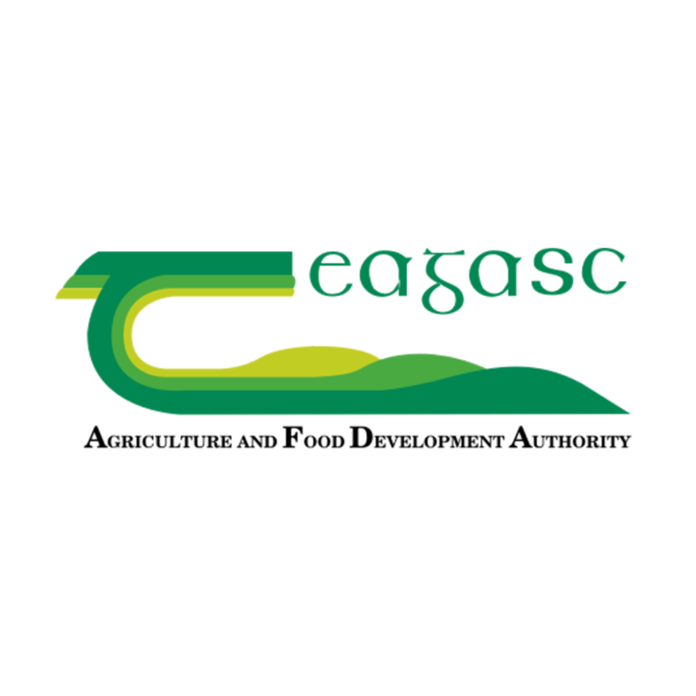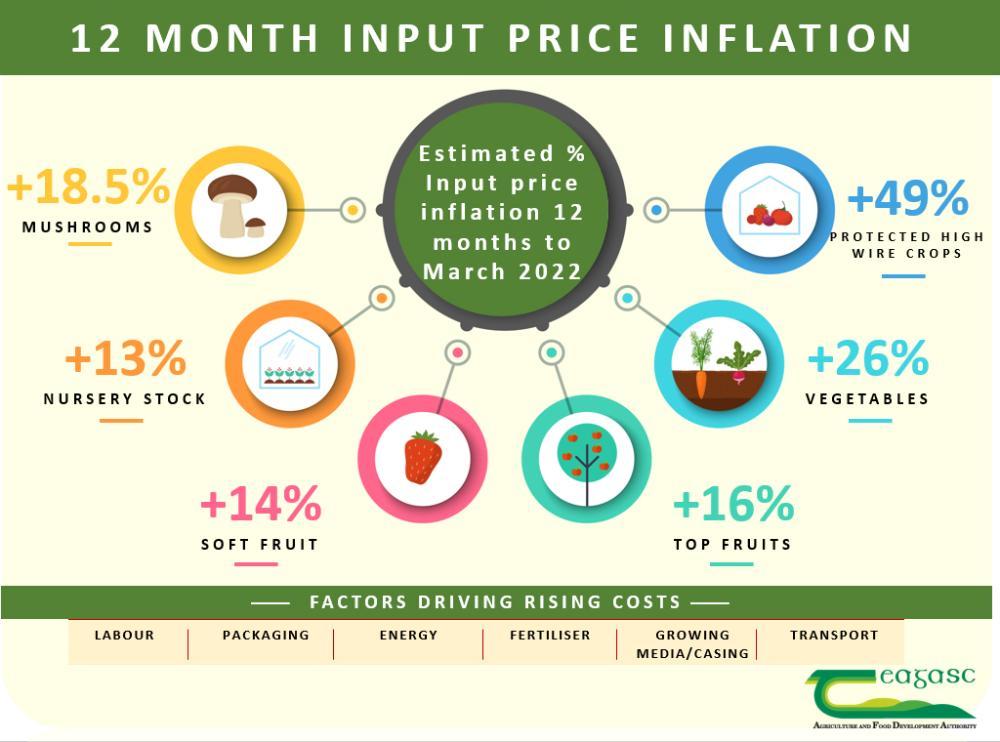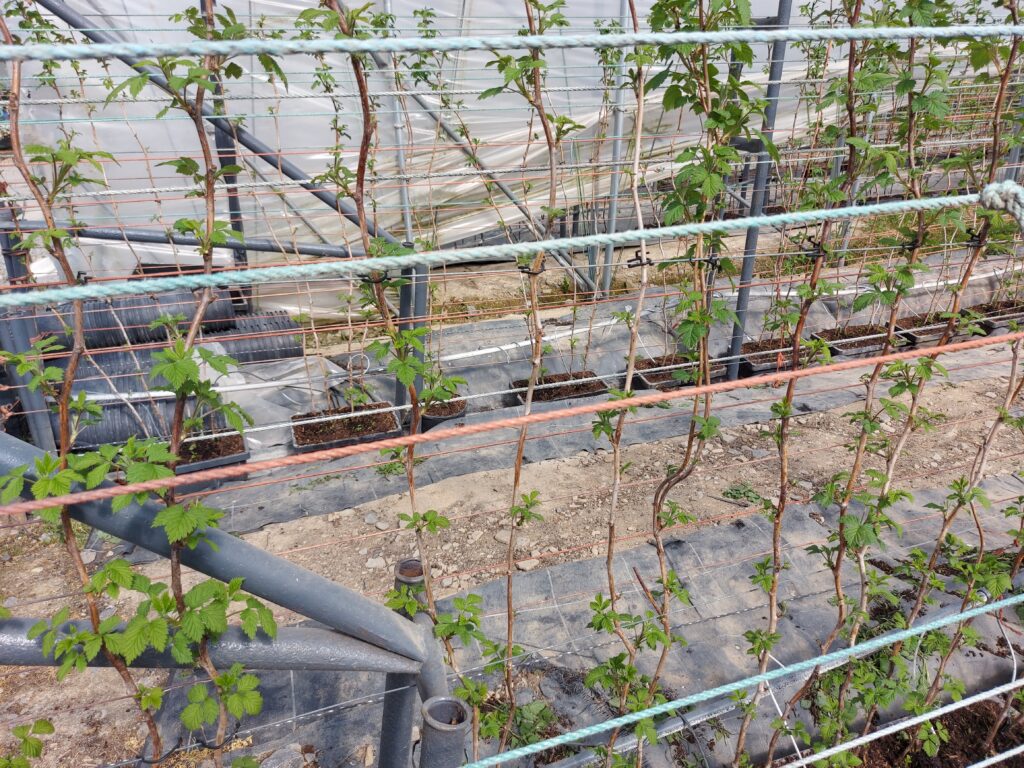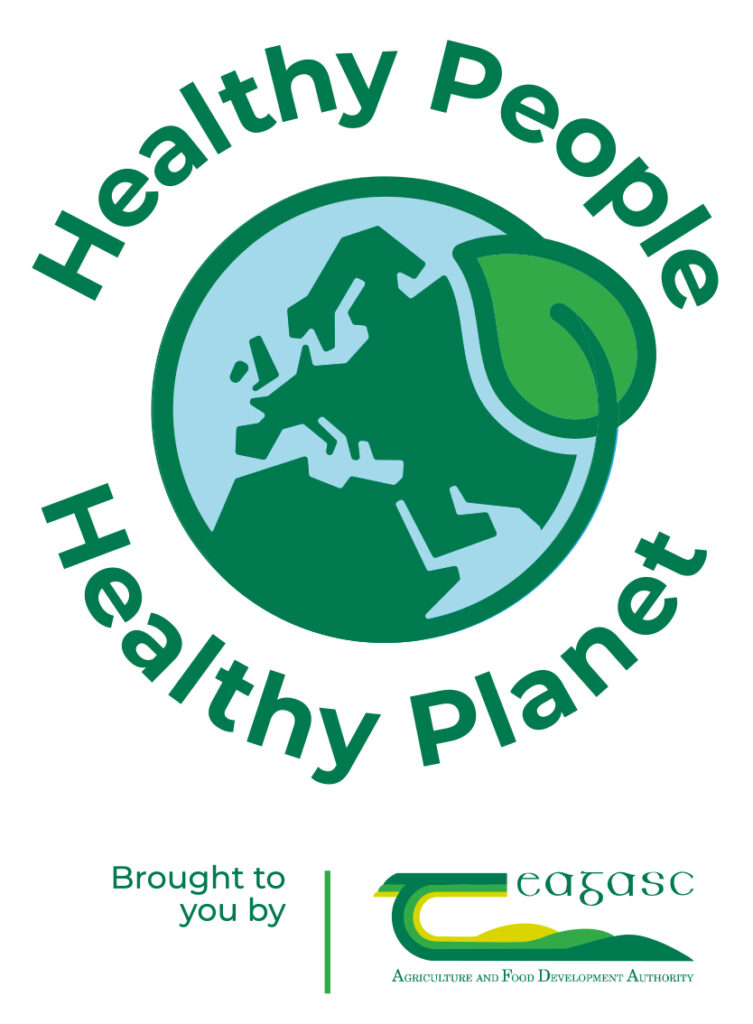ONGOING INPUT COST INCREASES SEEN ACROSS ALL SECTORS OF HORTICULTUREVarious external macroeconomic factors and world events have meant that grower’s input prices have risen sharply since March 2021. Brexit, Covid-19 and the continuing Ukrainian crisis have all contributed to a turbulent outlook when it comes to input costs associated with energy, labour, fertiliser, crop protection products, packaging and growth media. Growers are often left to absorb the cost incurred by such a rapidly changing economic environment. The knock-on effects of rising input price inflation and supply of goods and labour force, make planning and managing crops and produce increasingly risky. Through direct contact with primary horticultural producers, and from the available data, Teagasc have revised input costings for producers across each horticultural sector in Ireland for the 12 months up to March 2022, citing specific examples of factors influencing the rising cost of production. The full report can be found at the following link: https://www.teagasc.ie/publications/2022/horticulture- crop-input-price-inflation-2022.php.
|
NEW GROWING MEDIA RESEARCH OFFICER APPOINTED


This research will also encompass transformative processes and emerging technologies that can convert low-value waste, or side- stream materials of indigenous industries or land-management practices, into value-added growth media materials. Eoghan completed his PhD in analytical geochronology and geochemistry at Trinity College Dublin in 2020.
During this research, he has been involved in projects focussed on developing novel techniques used in the geochronological analysis of minerals, in addition to contributing to a greater understanding of the fundamental physicochemical characteristics of geo-materials. Eoghan is also an avid gardener and has worked in both landscaping and arboriculture. Added to this experience, his background in geo-material characterisation and analysis, will bring a new perspective to the challenges of developing peat- alternative growth media. ✽
MILDER WINTERS CAUSED BY CLIMATE CHANGE ARE IMPACTING SOME FRUIT PRODUCTIONThis year, insufficient winter chilling is causing poor and uneven bud break in new raspberry canes. This is especially the case with new ‘long cane’, ‘Tulameen’, and ‘Glen Ample’ varieties, both grown and imported from the Netherlands. The vast majority of canes, used in commercial raspberry production in Ireland, are propagated in the Netherlands.
This phenomenon was recently discussed on a Teagasc webinar with Dr. Nikki Jennings (raspberry breeder) from the James Hutton Institute, in Scotland. She discussed how she is now trying to use less cold demanding varieties in her raspberry breeding programme. The issue is becoming more serious now, due to climate change. The webinar can be found at the following link https://www.teagasc.ie/publications/2022/new-raspberry- varieties-from-the-scottish-raspberry- breeding-programme.php. ✽ ✽ |
CARBON FOOTPRINTS AND SUSTAINABILITY IN HORTICULTURE ENTERPRISES WEBINAR
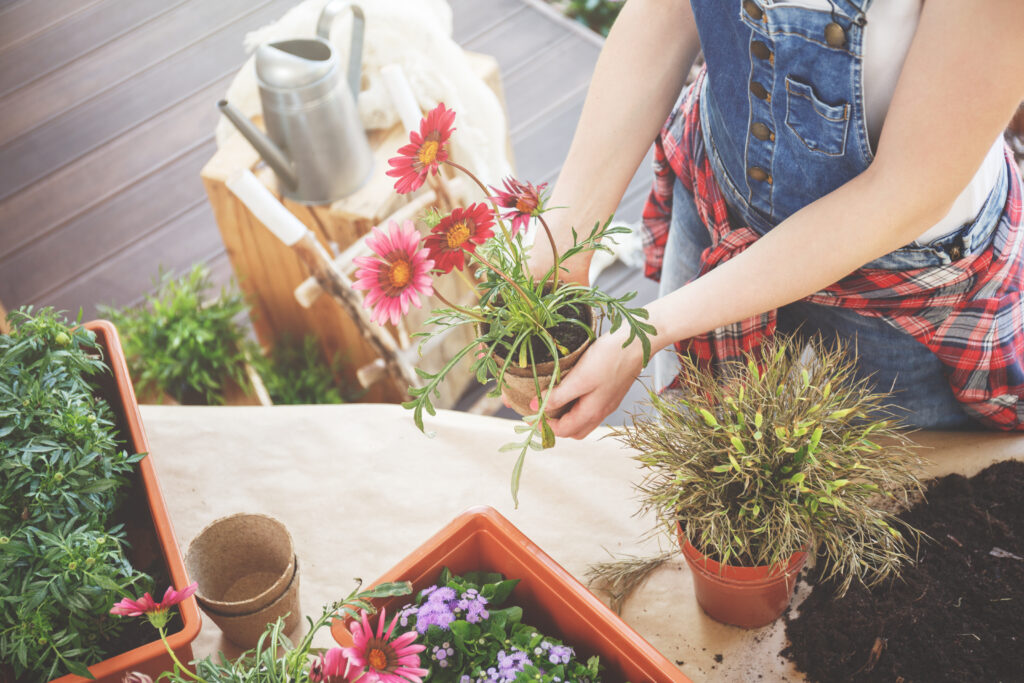

Teagasc Horticulture Development Department held a webinar on March 31 2022. Two speakers provided talks on floriculture and food horticulture. Dr David Bek’s presentation ‘Meeting the Sustainability Challenge in Ornamental Horticulture’ focused on the drivers of sustainable reporting, including regulation and consumer sentiment, threats facing horticulture from climate change, and the forthcoming EU- recognized FloriPEFCR standards for cut flowers and potted plants, expected in 2023. The second speaker, Islam Abdel-Aziz, delivered a presentation on ‘Carbon Accounting in Horticulture and Opportunities for Mitigation’, highlighting the benefits of accounting for carbon, methodologies and standards, and typical hotspots in production. The webinar is available to view on the Teagasc horticulture events web-page.
Upcoming event: As part of the Sustainable Cut-flowers Project co-led by Dr Bek, a workshop for stakeholders from the floriculture industry is due to take place in Holland in September 2022. Further details will be available on the project webpage in mid-June 2022. For further details and updates contact: David.Bek@coventry.ac.uk ✽
TEAGASC HORTICULTURE ‘HEALTHY PEOPLE, HEALTHY PLANET’ EXHIBIT AT BLOOM 2022
|



